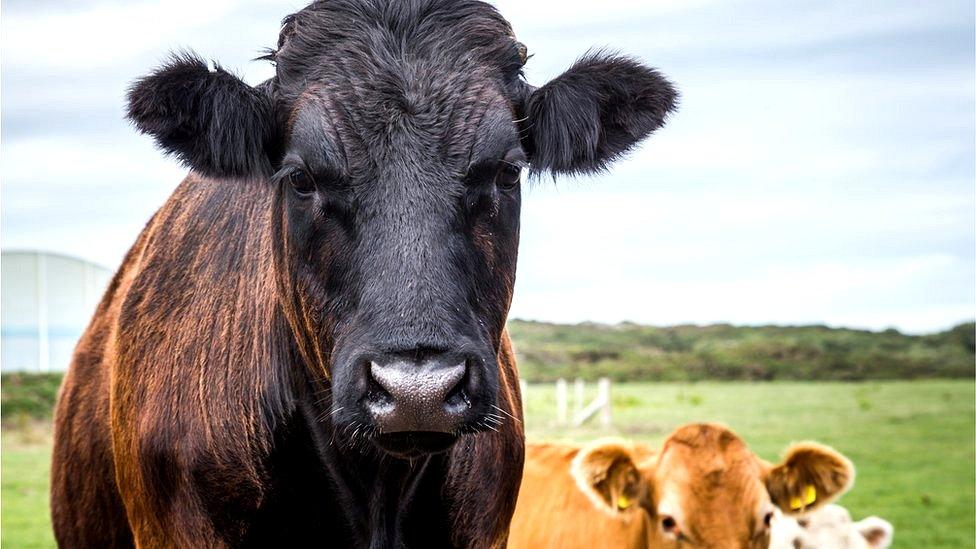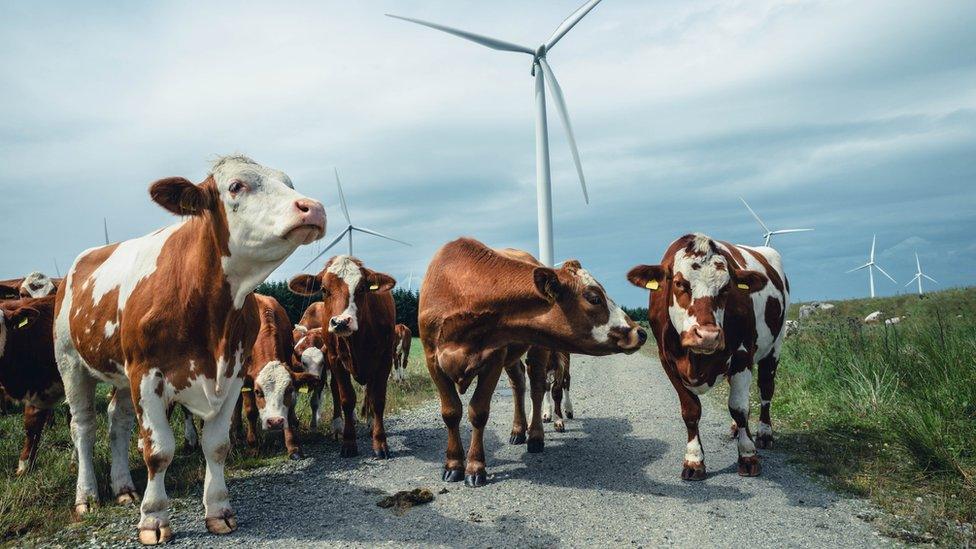Climate change: Farms face job losses without net zero support
- Published
- comments
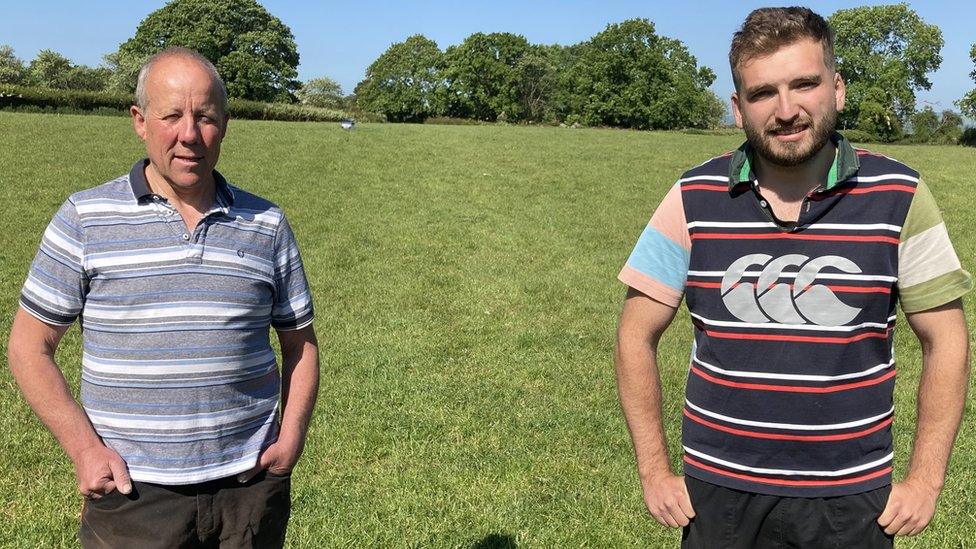
Sheep farmers Ian Rickman, 61, and Sean Jeffreys, 26, are working to diversity the grass in their fields
Livestock farms need support to adapt to climate change targets or risk big job losses, government advisers have warned.
Agriculture accounted for 14% of Welsh emissions in 2019 - two-thirds of which was methane from livestock and manure.
A new report said livestock farms needed to "redirect" as society decarbonises to meet climate goals.
The Welsh government said it was taking action to ensure a "just transition" to net zero.
Wales, like the UK, has a legally binding target to reach net zero by 2050 which means dramatically cutting greenhouse gas emissions.
But the body which advises ministers on climate change predicted these changes could have "significant impacts" on the farming workforce.
Between 7,000 and 42,000 jobs could be lost across the UK unless livestock farms adapt the nature of their work, the Climate Change Committee (CCC) estimated.
Sheep farmer Ian Rickman, 61, said the older generation needed "training and help to embrace new technologies and ways of working".
"Producing food more efficiently" could help to lower the carbon footprint of farms, which were keen to be "part of the solution" on climate change, he said.
'I do worry for the future'
Mr Rickman, who is deputy president of the Farmers' Union of Wales, recently brought in 26-year-old Sean Jeffreys as a partner at his 84-hectare farm near Bethlehem, Carmarthenshire.
The duo teamed up via a Welsh government-funded scheme which connects new farmers with landowners who are looking to step back.
They are working hard on the environmental aspects of the business, Mr Jeffreys said, including diversifying the grass in their fields to include herbs and legumes to boost biodiversity and soil health.
"I do worry for the future to be honest with you," he admitted.
"I feel like the governments in this country aren't putting enough focus on food security and if we're not careful farmland will be blanket planted [with trees] and we'll be importing from overseas.
"We'll think we're green and sustainable, but we won't be."
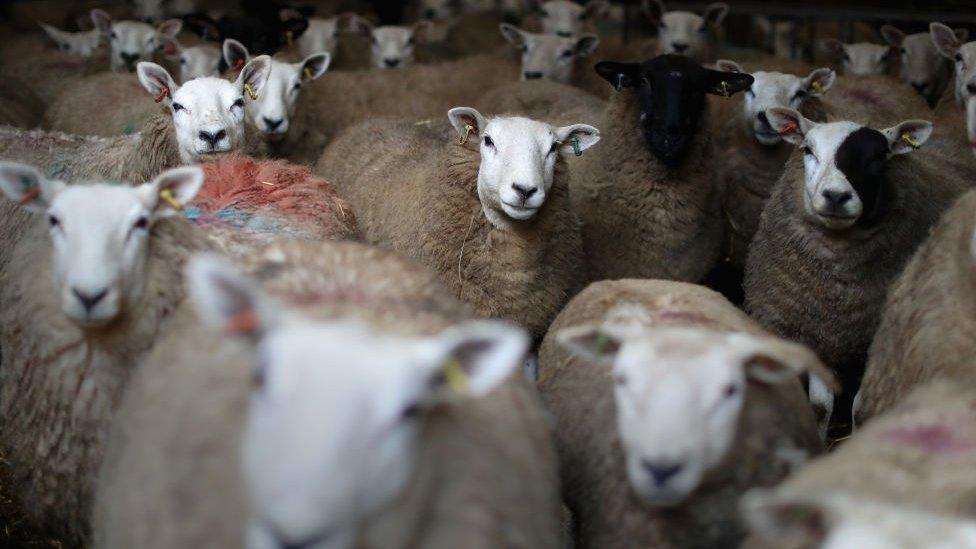
Welsh agriculture is dominated by sheep and cattle farming
Farming was the "backbone of the rural economy", agreed Mr Rickman, and severe job losses would be "devastating".
Penri James, visiting lecturer in agriculture at Aberystwyth University, said there needed to be "changes to the way farms operate".
He urged "joined up thinking" in government strategies around climate change, farming, skills and employment.
"There should be a huge amount of concern in government about how this transition is going to operate because if they don't get it right there will be significant job losses in rural areas and the disappearance of viable businesses."
That would "also have a socio-economic effect, in particular on the Welsh language," he said.
A spokeswoman for the Welsh government said it welcomed the report, which it said highlighted why its plans to transform farm support payments were needed.
Its sustainable farming scheme, which comes in from 2025, would "support our farmers in the sustainable production of food, at the same time as addressing the climate and nature emergencies," she said.
The UK government said its plans for green jobs would "ensure no workers are left behind".
"Far from a hands-off approach, we are investing nearly £4bn in supporting people retrain," a spokesman added.
- Published30 March 2023
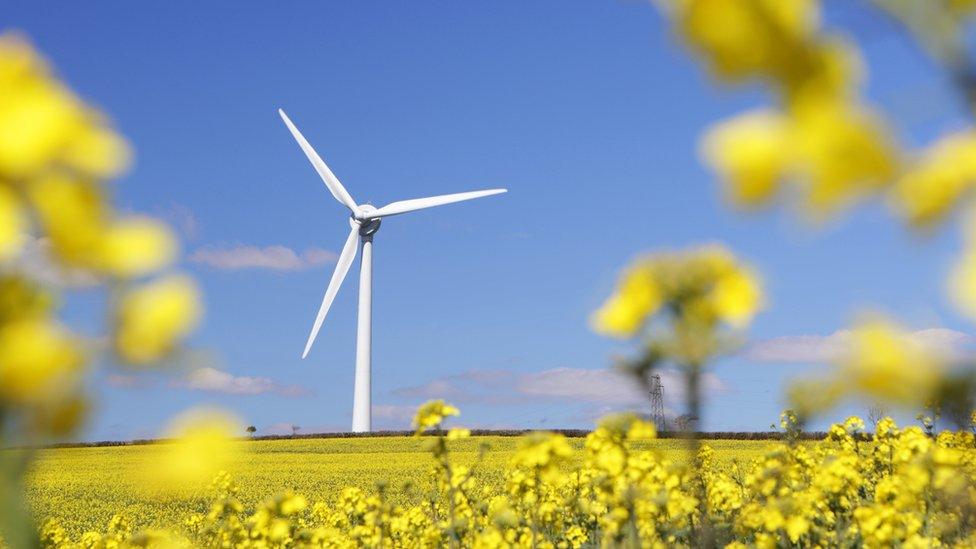
- Published21 October 2021
